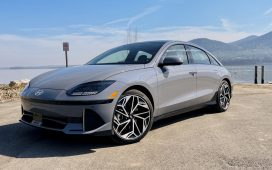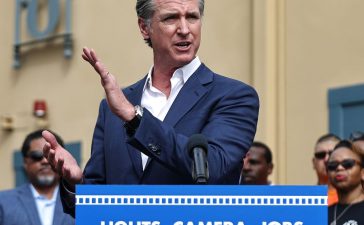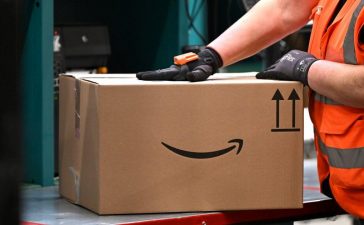Tesla investors are facing some big questions at this year’s annual shareholder meeting — board seats for the chair, CEO, and former chief technology officer — as well as succession planning for the post-Elon Musk era.
The meeting, which will be livestreamed from the company’s headquarters in Austin at 3PM local time, comes on the heels of Musk announcing that former NBCUniversal advertising head Linda Yaccarino will succeed him as CEO of Twitter. Analysts cheered the move as an important one that will hopefully result in Musk paying more attention to his primary company, Tesla.
Musk stepping down as Twitter CEO “will be a positive for Tesla’s stock starting to finally remove this lingering albatross from the story,” Wedbush’s Dan Ives said in a note this week.
Cue the theme to Succession
But Tesla investors are still looking beyond Musk’s leadership at the electric automaker at today’s meeting. Shareholders are set to vote on a proposal for the company to publish a report on “Key-Person Risk” that seeks to identify key persons and establish succession processes.
Musk has said he plans on staying in the top spot at Tesla for as long as he can be useful. But he has also publicly chafed at the role, claiming he prefers to be involved in product development. Tesla board member James Murdoch testified in a securities fraud trial last year that Musk has already identified a successor — though he didn’t name the person.
Possible successors that have been floated include Tesla chief financial officer Zachary Kirkhorn and former CTO JB Straubel, who now runs battery recycling firm Redwood Materials.
Tesla lists its reliance on Musk’s leadership as a potential risk. Supporters of the key-person risk proposal argue they want to ensure “that the company will have qualified successors in mind who are prepared to lead the company to success in the event of a key-person departure” — i.e., Musk.
But Tesla’s board is urging shareholders to vote down the measure, arguing a clear succession plan would be “detrimental to the interests of Tesla and our stockholders.” The proposal could lead to competitors coming in to poach Tesla’s top executives, while those who aren’t named as successors could be more incentivized to leave the company, the board argues.
The question of who will succeed Musk at Tesla hovering above the company for a number of years now. But the urgency around the question has intensified as Musk split his time between new ventures, including the $44 billion acquisition of Twitter. The naming of a new CEO of the social media company has helped allay some of those concerns — but the question of who can fill Musk’s shoes at a company that has come to be defined by his personality remains.
Tesla lists its reliance on Musk’s leadership as a potential risk
The board’s resistance to the key-person risk proposal likely ensures it will fall short of the votes it needs to pass. Tesla also has a robust number of retail investors that participate in its shareholder meetings, many of whom tend to follow Musk’s guidance and recommendations when it comes to voting.
In the run-up to today’s meeting, Musk has published a number of tweets that have been criticized as racist and antisemitic. He claimed that George Soros, the billionaire investor who is the frequent target of antisemitic conspiracy theories, “hates humanity.” (The Anti-Defamation League said that Musk’s comments would “embolden extremists,” according to CNN. Musk’s tweet made no mention of the fact that Soros had just sold his entire stake in Tesla, which totaled a little over 300,000 shares.
Musk has also been promoting misleading graphics on Twitter suggesting the media focuses nearly exclusively on white-on-Black crime, which is a common “dog whistle” among racist groups.
It’s poor timing on Musk’s part, considering all the critical issues at Tesla that need addressing. In addition to questions around succession, the company is also facing a price war with its competitors and shrinking profit margins. Tesla’s long dominance of the EV market is shakier than ever, down to 60 percent in the first quarter as compared to 72 percent the previous year.
Supporters of a clear succession plan at Tesla are unlikely to bring up Musk’s antics on Twitter during the shareholder meeting. But if the company’s financial position continues to weaken, it’s safe to assume that anything is on the table moving forward.












